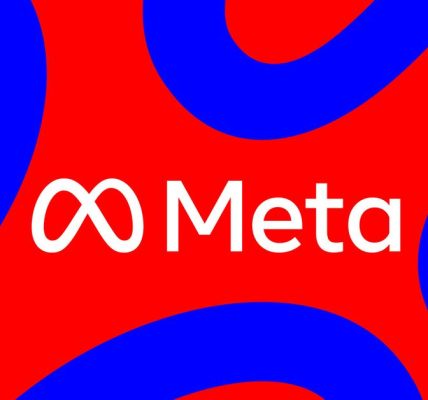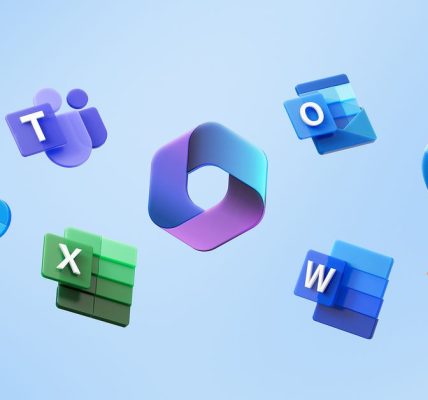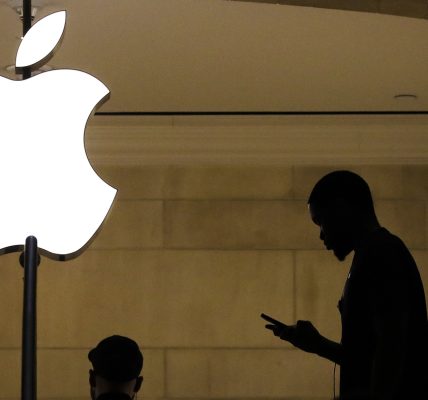Apple vs. Spotify: a European Commission ruling on app store restrictions in the Digital Markets Act (DMA), a message that Apple can not wield power abusively
“Apple will have to open its gates to its ecosystem to allow users to easily find the apps they want, pay for them in any way they want and use them on any device that they want,” she said.
On March 1st, Spotify published an open letter backed by 33 other companies and associations that raised concerns about Apple’s compliance. The EU response to the proposal will serve as a litmus test for the ability of the DMA to deliver for the European citizens and economy according to the letter.
The Digital Markets Act, due to take effect Thursday, imposes a set of do’s and don’ts on “gatekeeper” companies including Apple, Meta, Google parent Alphabet, and TikTok parent ByteDance — under threat of hefty fines.
In the early days, the feud was civil with few public barbs traded. Tim Cook said Apple was worried about the humans being drained out of music in a comment widely interpreted as a jibe at the heavy use of recommendations on the platform. But Spotify became more outspoken as EU politicians started to call for laws to reign in Big Tech. The €1.8 billion ($1.9 billion) fine on Apple announced by the European Commission today shows that its tactics are working. The fine stems from a complaint made to the European Commission by Spotify, challenging restrictions and fees that Apple places on developers in the Apple App Store. Today the European Commission agreed, saying that Apple’s app store restrictions amount to unfair trading conditions that may have led iOS users to pay significantly higher prices for music streaming subscriptions.
“For a decade, Apple abused its dominant position in the market for the distribution of music streaming apps through the App Store,” said Margrethe Vestager, the EU’s competition chief, in a statement. They restricted developers from talking to consumers about cheaper, alternative music services that were not tied to Apple.
The Commission took into account the amount of time it takes for the law to take effect as well as Apple’s turnover and market value when setting the fine.
“The decision was reached despite the Commission’s failure to uncover any credible evidence of consumer harm, and ignores the realities of a market that is thriving, competitive, and growing fast,” the company said in a statement.
This decision will send a message that no company, not even Apple, can wield power abusively to control how other companies interact with their customers, according to the company.
“Ironically, in the name of competition, today’s decision just cements the dominant position of a successful European company that is the digital music market’s runaway leader,” Apple said.
Two concerns were first the focus of the commission’s investigation. It was a practice of the maker to force app developers to use it’s in-house payment systems, which resulted in a 30% commission.
Those fees have turned into a significant part of Apple’s service’s division, which generated $85 billion in revenue during the company’s last fiscal year ending in September.
Various legal and regulatory developments in the U.S as well as Europe that are threatening to undercut the Apple’s commissions from the App Store have been weighing on the company’s stock, which has fallen by 9% so far this year while the tech-driven Nasdaq composite index has gained 8%. Apple’s shares declined 2.5% in Monday’s trading in the U.S.
Apple made some changes. It said in 2020 that developers could advertise payment methods outside of the app via email. Then, in early 2022, it started allowing developers to link out to their own sites from within the iOS apps themselves. But this second change only applied to so-called “reader apps” for services like Netflix, Kindle, or Spotify that are designed primarily to provide access to digital content, and developers needed to request an “entitlement” before they could add an external link. Bloomberg, which earlier reported on the EU’s antitrust fine, said Spotify criticized Apple’s rule changes as being “just for show.”
The investigation found that Apple banned streaming services from telling users the cost of their subscriptions, as well as linking to alternative subscriptions or email them to tell them about different prices.
US courts have ruled that Apple must allow developers to link out to other payment methods in order to overcome the legal challenge from Epic Games. It was Apple that insisted that it would take a cut of up to 27 percent from any purchases, even though it had begun to allow developers to link out. Apple’s critics called out the changes, with Spotify saying they showed that Apple “will stop at nothing to protect the profits they exact on the backs of developers and consumers under their app store monopoly.”
Apple restricts the tap-top-pay service on the iPhone to its own wallet and payment services, which the European Commission is investigating. As a result of the investigation, Apple has offered to let third-party mobile wallet and payment providers use the iPhone’s NFC feature for payments.
On Monday, Ek posted a video on X in which he described Apple as a threat to the open internet. He said that Apple had decided to close the internet and make it their own, and that they should be able to dictate what the user experience should be. Apple’s own music service called Apple Music is exempt from tax, according to Ek.




